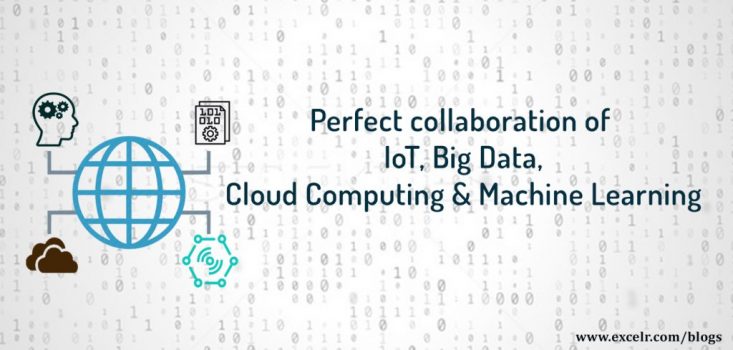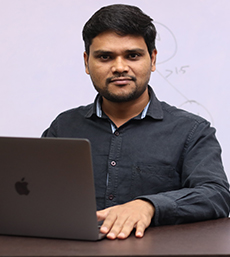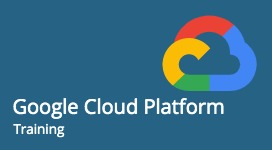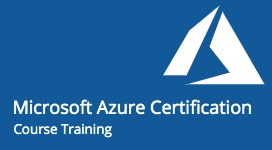Today top level executives are seeking answers to some basic questions with regard to business transformation and ‘disruption’. They want to know what their business operating model should be in the approaching 3-5 years, what they can achieve through technologies such as Cloud Computing, IoT, Machine Learning, Big Data Analytics, and other technologies. The future of work within the company is another question they seem to be asking often. The fact is that the technologies mentioned are empowering the organizations that have adopted them, and have the ability to transform the way companies approach operational issues.
Taking a Closer Look at the Perfect Four:
IoT denotes The Internet of Things. This is an electronic network of sensors, physical devices, industrial machinery, vehicles, machines, production plants, home appliances, jet engines, oil drills, and other items. Each of these is embedded with electronics, software, sensors, actuators, and connectivity options. This configuration allows all of these objects to connect and exchange data on a regular basis.
Big Data is a modern term that describes voluminous amounts of structured, semi structured, and unstructured data that has the potential to be mined for information. The term Big Data refers to “extremely large data sets that may be analyzed computationally to reveal patterns, trends, and associations.” Some of the acknowledged challenges facing Big Data include “capturing data, data storage, data analysis, search, sharing, transfer, visualization, querying, updating, and information privacy.”
Cloud Computing implies “the delivery of on-demand computing resources over the Internet.” This term also describes the act of storing, managing, and processing data through online resources, as opposed to executing such actions on a physical computer or network. Cloud computing involves “elastic and automatic infrastructure (with which) enterprises and service providers can provide agile and on-demand IT services on cloud platforms.” These include “private clouds, hybrid clouds, desktop clouds, video clouds, and all-in-one clouds.”
Machine Learning is a branch of artificial intelligence that “allows software applications to become more accurate in predicting outcomes.” The evolution of machine learning indicates that it can “play a key role in a wide range of critical applications, such as data mining, natural language processing, image recognition, and expert systems.” Experts note that in the past decade, “machine learning has given us self-driving cars, practical speech recognition, effective web search, and a vastly improved understanding of the human genome.”
How ExcelR is Collaborating:
ExcelR is offering a Diploma program from UNIMAS (Universiti Malaysia Sarawak) for serious learners as an opportunity to handle projects end to end. Mid-level executives and managers with coding experience can join these courses to gain a deeper understanding of modern technologies and apply the learning to the work place.
Innodatatics (a sister concern of ExcelR Solution) is offering a series of workshops. These workshops will help mid-level executive and managers to understand the importance of Big Data in business processes and the various tools that animate the technology.
The programs will blend theoretical sessions with practical exposure driven by hands-on exercises to reiterate the learning, quizzes to test learners’ understanding, and discussions followed by a final examination. These training programs are aimed at mid-level executives and managers that have knowledge of basic programming.
-
Level 1: Certification Program on Big Data (Using Hadoop & Spark) – The Big Data Certification Workshop will help learners to understand the importance of Big Data and its various tools. This workshop is designed to introduce learners to the various aspects of Big Data technologies.
-
Level 2: Certification Program on Data Science – The Data Science Expert Program is the next workshop designed to help learners understand Data Science tools and techniques. Topics will include machine learning, time series, forecasting, regression analysis, etc. The workshop will also explore the application of these technologies to solve complex business problems.
-
Level 3: Expert Program on Data Science – The third planned workshop is the Data Science Certification Program. This program is designed to help learners understand Data Science tools and techniques such as text mining for unstructured data, exploratory data analytics, data collection, probability and its distribution, regression analysis, and hypothesis testing, etc. The trainers will explore the various applications of such technologies to solve complex business problems.
Workshop trainers include Bharani Kumar and Sharat Chandra; both are experts in various information technology systems. Innodatatics, USA will award the certificate. Learners who wish to attain expert certification must first acquire certification in Foundation & Practitioner levels. Learners can complete each course individually and win certifications. Alternatively, they may apply for all three courses and acquire an Executive Diploma











